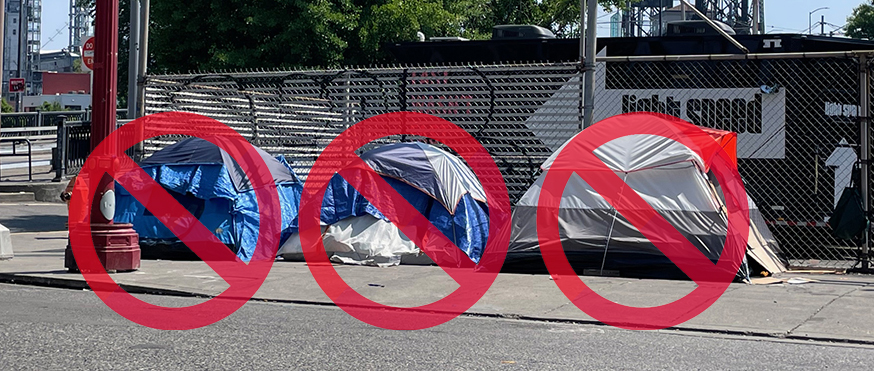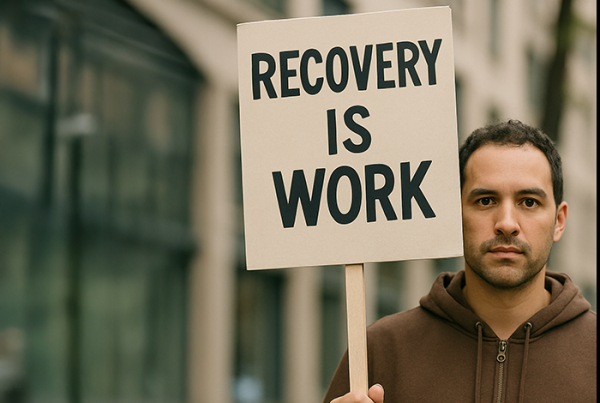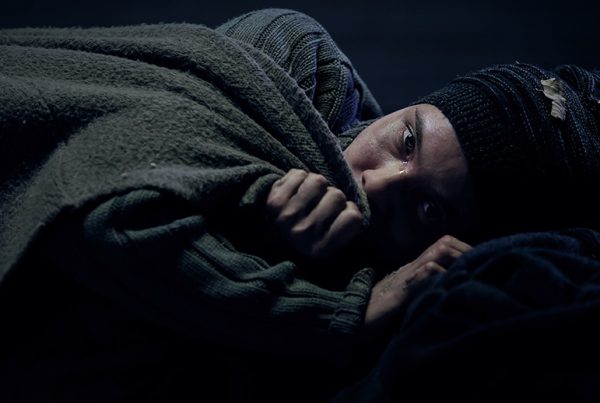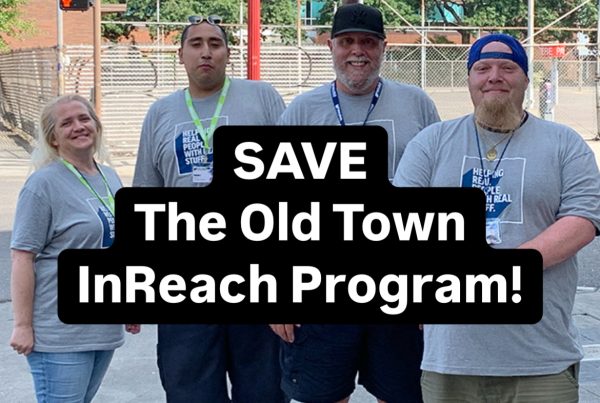Portland’s new ban on camping goes into effect today, July 7, 2023. City ordinances 14A.50.020 and 14A.50.050 make it unlawful to set up or remain in a campsite “for the purpose of establishing or maintaining a temporary place to live.” Campsite is defined as “any place where any bedding, sleeping bag, or other sleeping matter” is set up or kept. It also includes any place where a stove or fire exists.
According to the ordinance, a “tent, lean-top, shack, any other structure, or any vehicle of part thereof” can be considered a campsite. However, a campsite does not need to have one of these to be considered a campsite. The mandate states that:
“It shall be unlawful to erect, install, place, leave, or set up any type of permanent or temporary fixture or structure of any material(s) in or upon non-park public property or public right-of-way without a permit or other authorization from the City.”
Are you following so far?
This new regulation gives the city the power to “abate” property that violates these ordinances. How the city plans to abate property or otherwise enforce these new laws has yet to be communicated to the public.
The law provides for up to a $100 fine and/or 30 days in jail. Although everyone seems to admit that you cannot get $100 from someone experiencing homelessness, and no one in the city or county seems eager to imprison anyone.
The legalese and nuance of this ordinance will be lost on many people Blanchet House serves. What isn’t lost is the lack of shelter available to them. Even with the numerous large-scale outdoor camps the city plans to open, there still won’t be enough beds for everyone who needs one.
All Beds are Not Equal
Simply counting shelter beds belies the fact that not all beds are equal. A diverse population of people experiencing homelessness means that for the city to successfully shelter them they must address the wide array of needs for a person to sleep safely. This includes offering trauma-informed shelter bed spaces that also accommodate differences as to age, race, gender identity, sexual preference, disabilities, chronic illness, and past experiences with shelter. We need safe beds for couples, families, and their pets.
Currently, not all shelters can accommodate the variety of needs and challenges out there. And they certainly aren’t all equipped to serve those with significant mental illness and trauma. Or those addicted to dangerous drugs, often because they tried to medicate away their mental illness or trauma.
Camping Ban Will Increase Need for Daytime Services
What does it all add up to?
At Blanchet House, the month of June was the busiest of the year for meals served and inquiries for our residential program. We expect our numbers to continue to increase as people are now required by law to become mobile during the day. They likely will seek out safe and dependable spaces like the one we provide in our free cafe.
We also anticipate more agitation or even hostility in the affected community. We’ve observed during the pandemic years that this can happen when people are stressed more than usual, such as during sweeps. Addressing behavioral issues will fall to our staff, peer mentors, and compassionate volunteers.
Blanchet House is adjusting our café service to allow meal guests to bring in more of their belongings when dining with us. Allowing diners to bring in pets, small carts, bikes, suitcases, and other personal property helps them enjoy a meal at ease. Our meal guests often have items like family photographs that are precious to them. And what few possessions they have are critical to them surviving the night outdoors. We expect diners to bring everything with them for fear of losing things to a campsite sweep.
I’ve asked the city to help us and other day centers cope with the financial cost the new camping ban will bring. Currently, Blanchet House receives no city or county funding for any of our services, and we don’t benefit from Metro’s tax bond funding, either. We’re able to offer life-changing and life-saving programs thanks to amazingly generous and compassionate supporters. But as the new camping ban stresses our capacity further, we hope the city or county will acknowledge with financial support the important services their housed and unhoused residents receive from Blanchet House.
Question or comment? Email Scott at skerman@blanchethouse.org.


















